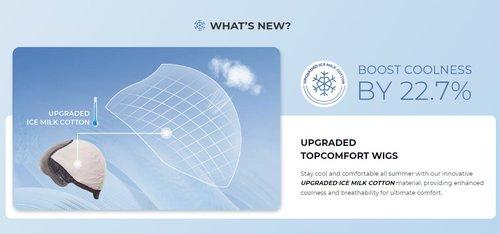Your Skin’s New Best Friend: Advanced Skincare Practices for Modern Wellness
Key Takeaways:
- Discover innovative skincare methods that go beyond traditional routines.
- Understand how technology is influencing the dermatology and wellness industries.
- Learn how lifestyle factors contribute to skin health.
- Explore insights from experts on maintaining healthy, glowing skin.
The Rise of Tech-Driven Skincare
The skincare industry is no exception in an era where technology seamlessly blends with everyday life. Technological advancements offer unprecedented insights and solutions, from apps that analyze your skin’s conditions through a single photo to cutting-edge devices that rejuvenate skin cells. These developments allow consumers to make informed decisions about their products and routines. Additionally, services like injectables Spring from esteemed wellness centers provide personalized treatments that cater to unique skin needs and conditions, offering more than just aesthetic improvements but also contributing to the skin’s overall health.
Holistic Approaches to Skin Health
A healthy glow isn’t solely reliant on topical applications; it reflects our overall lifestyle. A holistic approach emphasizes the need for a well-balanced diet, with foods high in vitamins and minerals crucial for healthy skin. Rich sources of antioxidants, such as berries and green tea, help combat oxidative stress, which can lead to aging and signs like wrinkles and spots over time. On the other hand, consistent exercise improves blood circulation, which supplies the skin cells with nutrients and oxygen, leading to better skin. Stress, an often overlooked culprit, can cause acne and psoriasis. Practices like yoga, meditation, or ensuring enough rest can be vital to maintaining radiant skin.
Understanding Skin Types and Needs
One of the fundamental steps in effective skincare is identifying one’s skin type. The diversity of skin types—from oily to dry and combination to sensitive—demands varied approaches to care. Oily skin, often characterized by excess sebum, benefits from lightweight, non-comedogenic products, while dry skin thrives on intensive hydration techniques. On the other hand, sensitive skin requires gentle ingredients that do not irritate. Professional consultations offer personalized skin assessments, enabling individuals to adapt their skincare regimens as their skin changes due to age, climate, or hormonal shifts.
Common Skin Types
- Dry Skin: Exhibits flakes and a rough texture; needs nourishing oils and heavy moisturizers.
- Oily Skin: Prone to acne and shine; requires oil-free and mattifying products.
- Combination Skin: Features oily and dry areas; needs a balanced skincare routine.
- Sensitive Skin: Reacts quickly to products; benefits from fragrance-free, hypoallergenic options.
Innovative Treatments in Dermatology
Advancements in dermatological science present many treatment options that cater to different skin concerns. Technologies such as fractional lasers target deep layers of the skin, effectively treating issues such as fine lines and uneven pigmentation. Other non-invasive techniques, like microneedling or radiofrequency, stimulate collagen production, improving skin elasticity and firmness. These methods represent a turning point in skincare, providing practical solutions with minimal recovery times and making them accessible to those with busy lifestyles. Specialized treatments are not limited to clinical settings but are also increasingly available in med spas, bringing advanced care to a broader audience.
Expert Tips for Daily Skincare
Long-term preservation and enhancement of skin health is the ultimate aim of any skincare regimen. While high-end, sophisticated products are available, the foundation of effective skincare lies in simplicity and consistency. Experts advise beginning with a mild cleanser to eliminate contaminants without depriving the skin of its natural oils. Moisturizing is crucial to preserve the skin’s hydration and protect its barrier against environmental stressors. One of the most vital elements of daily skin care is the application of broad-spectrum sunscreen, which safeguards against UV-induced damage. Staying committed to these basic steps can lead to profound long-term benefits.
The Role of Environmental Factors
The relationship between environmental factors and skin health is well documented. Pollutants in the air can lead to clogged pores and increased free radicals, which accelerate the aging process. Measures to counteract these effects include using antioxidant-rich serums that neutralize free radicals alongside regular cleansing routines that remove particulate matter from the skin’s surface. Meanwhile, sun exposure remains one of the primary causes of premature aging and skin cancer. Protective clothing, sunglasses, and diligent sunscreen application are critical defensive strategies year-round.
Personalized Skincare: A Revolution
The trend towards personalized skincare is gaining momentum, propelled by advancements in biotechnology and data analytics. Genetic testing can uncover predispositions to certain skin conditions, allowing for bespoke skincare products and routines tailored to individual needs. This custom-made approach enhances the effectiveness of products and increases consumer engagement with their skin’s health, moving beyond traditional trial-and-error methods to scientifically driven solutions.



